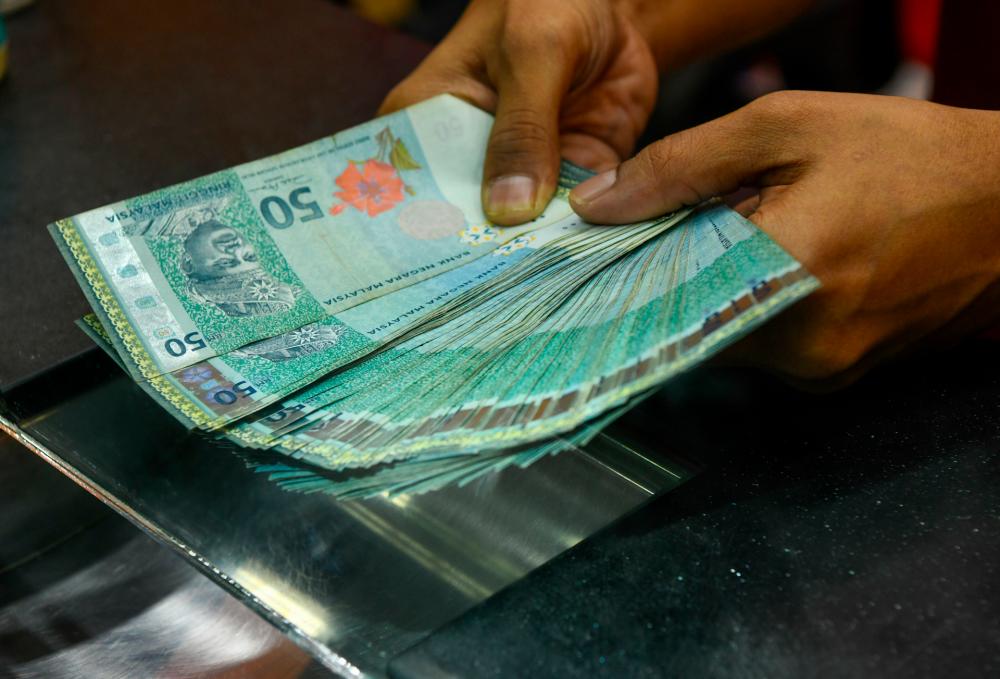KUALA LUMPUR: The ringgit opened flat against the US dollar but rose versus other major currencies amid rising greenback demand, following the release of key United States (US) economic data yesterday, said an analyst.
At 8 am, the ringgit remained unchanged at 4.850/4.4900 against the greenback, holding steady from yesterday’s close.
Bank Muamalat Malaysia Bhd chief economist Dr Mohd Afzanizam Abdul Rashid said the US Dollar Index (DXY) gained momentum again after the US Job Openings and Labour Turnover Survey report revealed higher jobs availability in November last year.
Additionally, business sentiments in the services sector improved in December 2024, with the ISM Index for the non-manufacturing sector increasing to 54.1 points from 52.1 points in the preceding month, he said.
“As such, the US dollar will stay positive as the US Federal Reserve (Fed) may not be in such a hurry to cut rates further. That would also mean that emerging market currencies, including the ringgit, would likely weaken against the US dollar,“ he told Bernama.
Meanwhile, UOB Kay Hian Wealth Advisors head of investment research Mohd Sedek Jantan opined that the unexpected rise of the ISM Index prompted a sell-off in US Treasury bonds, driving yields higher and exerting downward pressure on equity markets.
The two- and 10-year US Treasury yield rose by 2.0 and 5.0 basis points to close at 4.30 per cent and 4.67 per cent, respectively.
“The data has effectively dampened any residual expectations of an imminent Fed rate cut,“ he added.
Amid these dynamics, SPI Asset Management managing partner Stephen Innes noted that US President-elect Donald Trump has reiterated his commitment to imposing tariffs despite speculations of a more tempered approach.
“This stance and rising US yields underscore concerns for Asian foreign exchange markets. Many countries in the region rely on US dollar-denominated debt to finance their budgets, and the escalation in long-term US yields—where much of this funding is sourced—poses a significant threat.
“This scenario further strains these economies, which are already grappling with the challenges of potential new tariffs and their broader economic implications,“ he said.
During the opening session, the ringgit traded higher against the Japanese yen, improving to 2.8348/8384 from 2.8458/8492 at the close on Tuesday. It also appreciated against the euro to 4.6384/6436 from 4.6756/6808 yesterday and improved against the British pound to 5.5955/6017 from 5.6341/6403 previously.
At the same time, the ringgit traded mixed against ASEAN currencies, rising against the Thai baht to 12.9684/9911 from 13.0045/0258 yesterday and edging higher against the Singapore dollar to 3.2864/2906 from 3.2983/3022 previously.
Conversely, the ringgit remained unchanged against the Indonesian rupiah and the Philippines’ peso at 277.7/278.2 and 7.71/7.72, respectively.









